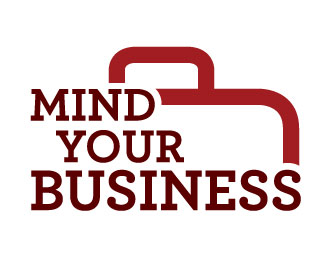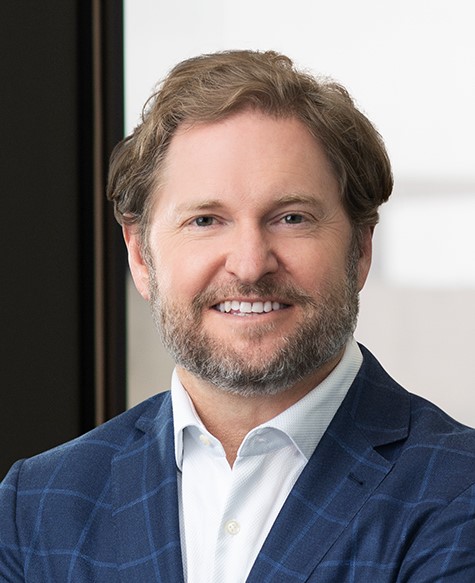How an Am Law 200 firm created an incubator program for associates to learn business, leadership skills
An intrepid cavalier King Charles spaniel named Rocky was an unexpected source of inspiration for “Project Rocky,” a microincubator program.
In early 2020, as the severity of the COVID-19 pandemic was starting to set in, our leadership team tapped into an unexpected source of inspiration: My dog—an intrepid cavalier King Charles spaniel named Rocky.
Rocky is the quintessential adapter and innovator. Put in any situation, Rocky can see around corners and anticipate opportunities, whether it’s positioning himself to be where a crumb falls or catching an open gate or another path to trouble.
As the pandemic was upending life and work across the globe, we saw an opportunity to bring together a small cohort of our talented associates to leverage that same nimble and innovative approach. This gave rise to “Project Rocky,” a microincubator program aimed at giving associates room to develop leadership skills, foster creative thinking and facilitate collaboration with colleagues in different locations and practice areas.
Inspired by Rocky’s scrappy spirit, the program carves out a safe space for lawyers to ideate and gain experience early in their careers being with innovative with business development initiatives—something not offered by many firms.
In addition to serving as a catalyst for new ideas that bring value to the firm and our clients, launching the program helped Quarles stand out as competition for talent became a top challenge for law firm leaders.
Furthermore, in emerging from a period that many associates spent working primarily in isolation, programs like this help build greater cohesion among team members, while creating the type of bond among our attorneys and the firm that is critical for retention and overall job satisfaction. For instance, a recent Thomson Reuters report makes the argument that continuously increasing compensation is not enough to retain talent and today’s lawyers have different expectations when it comes to what they want out of their work lives.
Empowering associates to take chances, engage in entrepreneurial thinking and gain practical leadership skills early in their careers is an important part of our overall approach to talent development and retention.

How we did it
Amid the chaos of the first year of the pandemic, leadership at the firm was focused on how COVID-19 would affect our employees and the business.
Nobody knew what would come next. Assuming there’s a cliff ahead, what can you do to pivot? We thought we would gather a group of associates and do something fun at a crazy time. We wanted to get around the hurdles of team-building and collaboration in the pandemic by being intentional about how we brought people together.
The group was encouraged to come up with any actionable ideas—no matter how big or small and without worry of whether they would succeed or fail. We were open to anything that could benefit the firm, aid our internal teams in working smarter and help us stay connected to our clients.
Our firm’s chief business development officer, Jill Weber, and I provided the group with some ideas and examples to get them thinking. We also did the kinds of activities you would at a retreat—ice breakers, brainstorming—but virtually and in a small group. But after a few full group meetings, we broke the group into smaller teams and got out of the way. The lawyers got together on their own, kicked around ideas and began developing the more promising concepts into full-fledged actions plans.
Jill also met one-on-one with each of the associates to further develop their ideas, providing customized coaching and the opportunity to build strong relationships between the associates and our business development team.
At the end of the project, we reconvened for a virtual cocktail hour. The associates presented their ideas and received feedback in a relaxed setting.
If this all sounds like a departure from typical law firm culture—top-down, risk-averse, bound by tradition and driven by committees—well, that’s the point. We wanted this project to be inspiring, nonbureaucratic and provide a call to action. At the same time, the people who are often most successful in big law firms tend to be creative and embrace risk-taking, and I feel strongly that these are traits that can be developed if you give people the right opportunities.
Part of promoting that kind of thinking is encouraging people to take small steps—not putting pressure on them to devise big, game-changing plans, which can lead to paralysis. Project Rocky emphasizes a bite-sized approach, with the overall purpose of allowing associates to approach this at their own pace while having some fun and gaining on-the-job leadership training. In addition to our firm’s robust business development curriculum and various professional development tools that we provide to attorneys at all levels, we feel it’s important to offer programs like this that give attorneys different ways to build their skills and gain meaningful experiences.
Driving innovation in client service
Project Rocky also helps associates think about their role as a lawyer and about client service from a different perspective, including ways they can deepen relationships with clients and be helpful to them in areas that go beyond the direct legal work we do.
For example, one associate who recently received a prominent award wanted to “pay it forward” by reaching out to in-house lawyers to offer to nominate them for awards, sharing her own recent recognition as an example. Her email outreach had an unexpected but wonderful outcome. While she was not taken up on an award nomination, the outreach led one client to invite her to lunch with a colleague from a different organization, which ultimately resulted in a major new client engagement.
 Brad Vynalek.
Brad Vynalek.
Other ideas included a newsletter and webinar series focused on the start-up community, and an in-house toolkit for Quarles alumni who take in-house positions, providing education and insights to benefit those lawyers in their new roles. Both ideas demonstrate that we’re thinking about the broader pressures our clients face and provide a potential touch point with clients or new business prospects. Ideas like that are simple and can generate meaningful goodwill.
We completed two iterations of Project Rocky in 2021 and are currently conducting a third. Many of the same underlying concepts that gave rise to the idea have remained, but one key change is that this time, instead of having leadership pick out participants, we asked the previous group to select peers they thought could benefit from the program. We feel this approach empowers the associate who is doing the picking, and also keeps the project from getting too bureaucratic. The aim is to stay true to the creative ethos that Rocky embodies and keep it moving forward.
Brad Vynalek is president of Quarles & Brady, a national law firm with approximately 475 attorneys. He plays a leading role in driving the firm’s innovation strategy and growth initiatives, with a focus on new processes to enhance client service delivery, creating legal operations solutions to provide greater value to clients and developing internal initiatives to generate new ideas across the firm.
Mind Your Business is a series of columns written by lawyers, legal professionals and others within the legal industry. The purpose of these columns is to offer practical guidance for attorneys on how to run their practices, provide information about the latest trends in legal technology and how it can help lawyers work more efficiently and strategies for building a thriving business.
Interested in contributing a column? Send a query to [email protected].
This column reflects the opinions of the author and not necessarily the views of the ABA Journal—or the American Bar Association.




